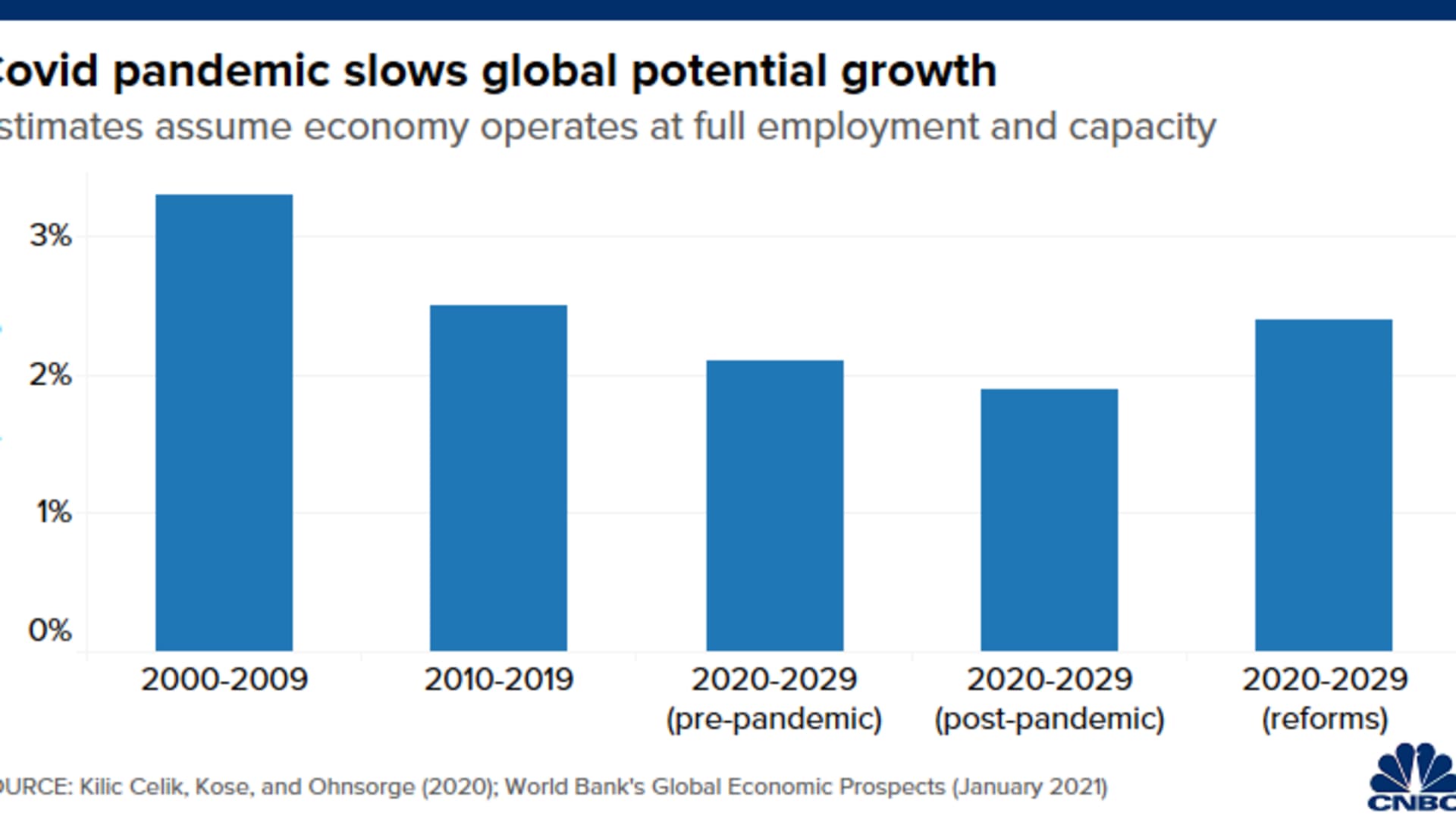
A Palestinian youth wearing a face mask rides his bicycle past a mural painting of a nurse injecting a vaccine to a coronavirus in Gaza City, on Dec. 31, 2020.
- The global economy could be heading for "a decade of disappointing growth outcomes" after the Covid-19 pandemic triggered one of the worst economic recessions in history, said the World Bank.
- In its Global Economic Prospects report, the bank projected that global potential growth — which assumes the economy operating at full employment and capacity — will slow to 1.9% a year from 2020 to 2029.
- Before the pandemic, potential growth was expected to be 2.1% a year over the ten-year period, the World Bank said.
SINGAPORE — The global economy could be in for "a lost decade" with subdued growth after the Covid-19 pandemic triggered the worst economic recession since World War II, the World Bank said on Tuesday.
"If history is any guide, unless there are substantial and effective reforms, the global economy is heading for a decade of disappointing growth outcomes," the Washington D.C.-based group said in its biannual Global Economic Prospects report.
The bank said economic prospects were already weakening before the pandemic due to an ageing population and low productivity growth. And the global Covid outbreak will likely worsen that slowdown, it added.
Get top local stories in Philly delivered to you every morning. >Sign up for NBC Philadelphia's News Headlines newsletter.
The World Bank projected that global potential growth — which assumes the economy operating at full employment and capacity — will slow to 1.9% a year from 2020 to 2029. Before the pandemic, potential growth was expected to be 2.1% a year over the ten-year period, said the bank.
It explained how the pandemic would hold back global economic growth over the long term:
- Uncertainties and weak growth expectations may discourage companies from making new investments;
- Persistent unemployment and worldwide school closures will result in a loss of knowledge and skills in the labor market.
Such a long-term slowdown in the global economy would come even as it is set to recover in 2021 from last year's slump. After contracting 4.3% in 2020, the global economy is forecast to grow 4% this year, the World Bank estimated.

But not all is lost. The bank said there are measures that policymakers can take to mitigate or reverse the economic damage from the pandemic.
Money Report
Possible measures include spending in infrastructure, support to boost female employment and diversifying the economy so that it's not overly reliant on particular sectors, said the World Bank.
Reforms that countries undertake should depend on their respective government finances, priorities and economic structures, it added.
"Reforms to increase investment in physical and human capital and to raise the labor supply could more than reverse the pandemic's damage to potential growth over the 2020s," the World Bank said in its report.
"Investors have typically recognized past reform efforts with upgrades to their long-term growth expectations."






